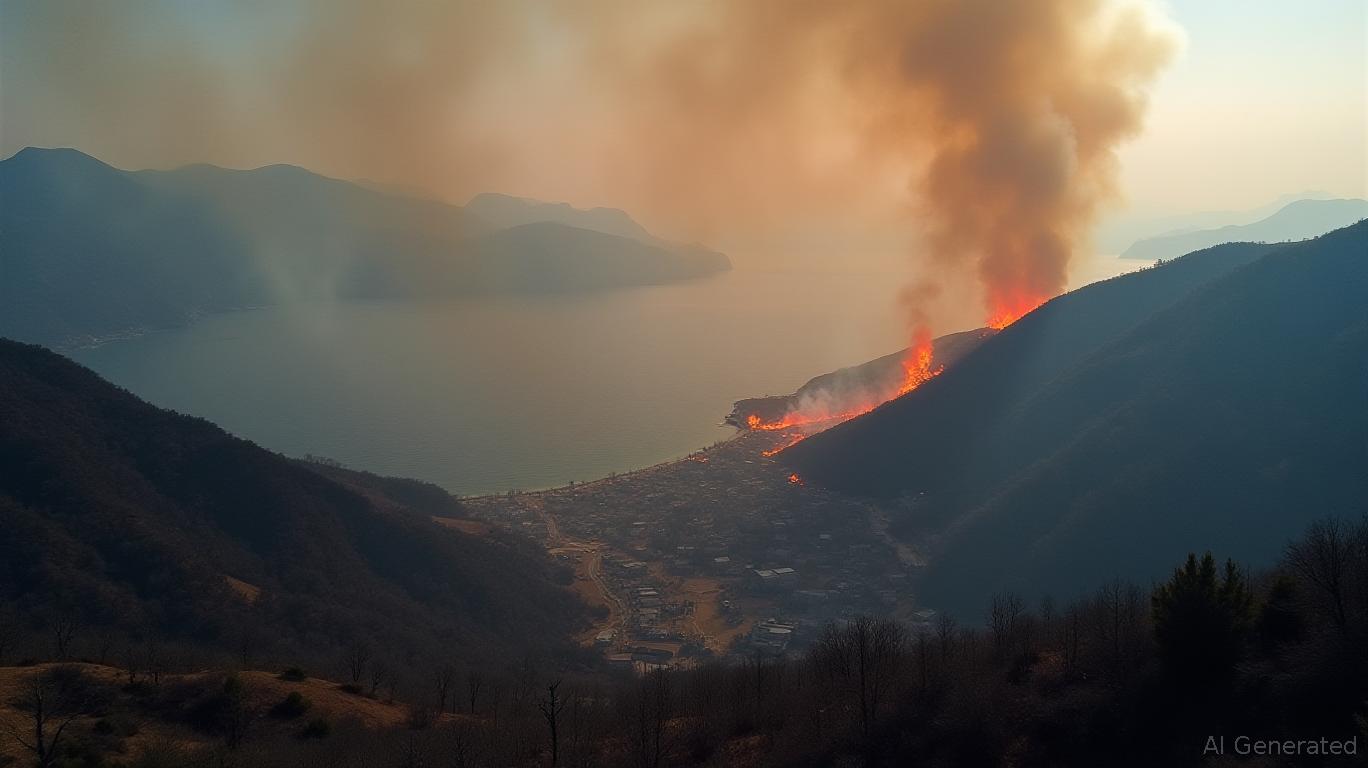The Mediterranean’s “hotspot” status for climate change is no longer a metaphor. Greece’s 2023 wildfires, which scorched over 175,000 hectares—nearly double the annual average—have become a stark warning of the escalating risks of a warming planet. But behind the tragedy lies a market opportunity: the global rush to invest in climate resilience infrastructure. From AI-driven fire prediction systems to advanced firefighting tech, Greece’s crisis is now a blueprint for innovation—and investors are paying attention.

The Greek Wildfire Crisis: A Catalyst for Innovation
The 2023 fires were a wake-up call. In July, wildfires on Rhodes and Euboea forced mass evacuations, while Attica’s flames threatened Athens’ suburbs. These fires weren’t just bigger—they were hotter, fueled by record-breaking temperatures and parched landscapes. The economic toll was staggering: tourism revenues dropped by 15% in fire-ravaged regions, and firefighting costs surged to €500 million. But the crisis also exposed systemic vulnerabilities: outdated infrastructure, slow response times, and reliance on reactive firefighting.
Climate models aren’t optimistic. Projections show Greece’s wildfire risk could rise by 50% by 2050, with “extreme” fire zones expanding from 4% to 16% of its land. The Mediterranean’s “fire season” is now 30% longer, and the cost of inaction is clear. Governments are responding: Greece has doubled its firefighter count to 18,000 and allocated €2 billion for climate resilience projects. This isn’t just a Greek problem—it’s a global preview of what’s coming. California, Australia, and even parts of Siberia face similar risks. The solution? Climate resilience infrastructure—and it’s a booming sector.
The Investment Playbook: Where to Bet on Climate Resilience
The race to build fire-resistant ecosystems and smarter emergency systems is creating opportunities across industries. Here’s where investors should look:
1. AI-Driven Fire Prediction & Monitoring
Early warning systems are critical. Companies like Palantir (PLTR) and Maxar Technologies (MAXR) are leveraging AI and satellite data to predict fires before they start. For instance, Palantir’s wildfire analytics platform integrates climate data, fuel moisture levels, and human activity patterns to create real-time risk maps. Meanwhile, Maxar’s Earth-imaging satellites provide high-resolution data for detecting fires within minutes of ignition.
2. Advanced Firefighting Equipment
Traditional methods—water bombers and ground crews—are insufficient for megafires. Investors should watch Lockheed Martin (LMT), which develops AI-guided drones for aerial firefighting, and DJI, whose drones map fire perimeters in real time. Even niche players like Fireline Systems (FLS) are innovating: their wildfire-resistant building materials reduce urban fire spread by 70%.
3. Sustainable Infrastructure & Urban Planning
Cities must adapt. Siemens (SIE) and Schneider Electric (SU) are pioneering smart grids and heat-resilient urban design, while BAM Construction (BAM) integrates green spaces into cityscapes to act as firebreaks. These companies are not just mitigating risks—they’re future-proofing real estate values.
4. Air Quality & Health Tech
Wildfire smoke’s health toll—asthma spikes, CO poisoning—is another growth area. 3M (MMM) dominates respiratory masks, while startups like Aclima (ACLM) deploy air-quality sensors to alert communities.
The Bottom Line: Climate Resilience is the New Green Energy
The climate tech sector is booming. Global investment in resilience infrastructure hit $450 billion in 2024, up 200% since 2020. Greece’s crisis has accelerated demand for solutions, and investors ignoring this trend risk missing out.
For long-term portfolios, consider ETFs like ARKQ (focusing on disruptive innovation) or sector-specific picks like PLTR and MAXR. For the bold, early-stage startups in drone tech or AI analytics offer high-risk, high-reward plays.
Greece’s wildfires are a tragedy—but they’ve also lit a fuse for innovation. As heatwaves and fires become the “new normal,” climate resilience isn’t just ethical—it’s the smartest investment of the decade.